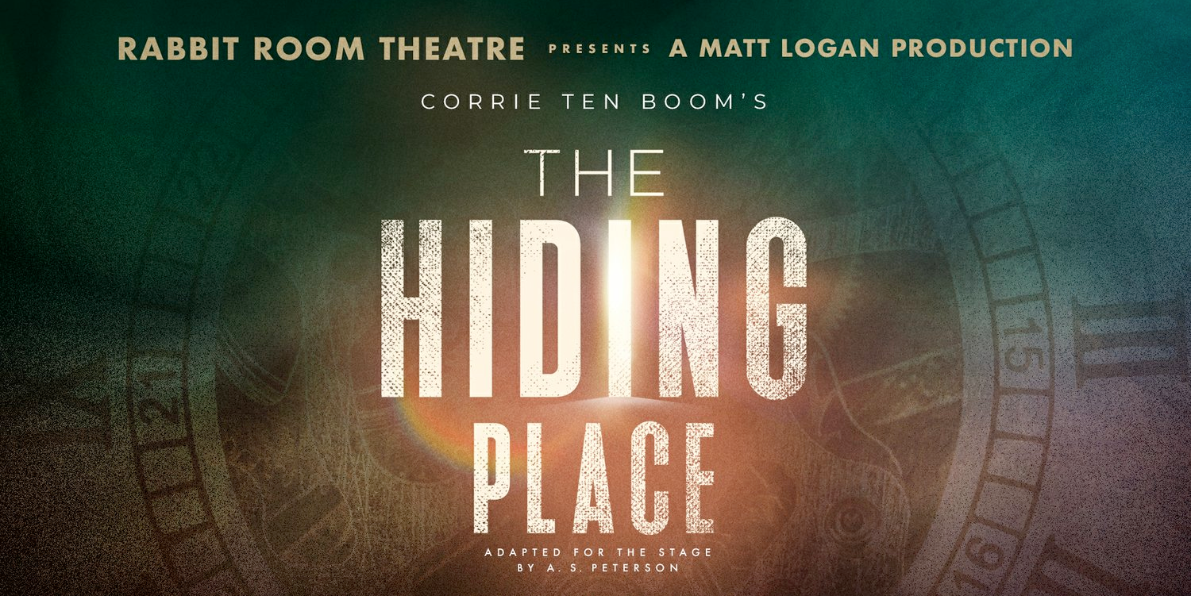
Matt Logan, a founding partner of one of the area’s most prolific theatre companies, and one of my favorite theatre crushes in the Nashville theatre community, has not only formed a new production company, Matt Logan Productions, but is also teaming with Rabbit Room Theatre’s A.S. “Pete” Peterson, playwright extraordinare of 2016’s highly-praised The Battle of Franklin and 2018’s lavish adaptation of Frankenstein, to present another of the scribe’s noted works, The Hiding Place, opening Thursday, June 30 at Soli Deo Center on the campus of CPA.
Peterson’s stage play, making it’s Tennessee debut after having enjoyed a World Premiere in Texas just a couple years ago, expands upon Corrie ten Boom’s 1971 autobiographical account of her Dutch Christian family’s unlikely activism during the 1940s when Nazis invaded their homeland of Holland and the ten Boom family made the decision to hide Jews in their family home.
When I was a kid, I remember knowing there was a movie starring Julie Harris that was based on ten Boom’s book. Beyond that, I was mostly unfamiliar with the story, but knowing Logan is involved as this production’s producer, director and designer, then finding that among the cast are John Schuck, Nan Gurley and Carrie Tillis, three more of my theatre crushes, I knew I had to chat with them all for my latest Rapid Fire 20Q interview.
——————————
RAPID FIRE 20Q WITH DIRECTOR AND CAST OF THE HIDING PLACE
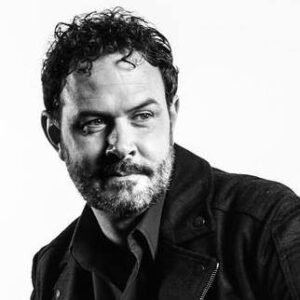 RAPID FIRE Q&A WITH THE HIDING PLACE PRODUCER, DESIGNER, DIRECTOR, MATT LOGAN
RAPID FIRE Q&A WITH THE HIDING PLACE PRODUCER, DESIGNER, DIRECTOR, MATT LOGAN
JHPENTERTAINMENT: Producer, director, designer…is there anything you can’t do? But seriously, what’s it been like to tackle so much with this inaugural production with The Rabbit Room Theatre?
MATT LOGAN: It has been amazing to work with a company like Rabbit Room. The steadfast support for quality theater is strong. They understand that if we are gonna do this, we are doing everything to the best of our ability. Nothing will be halfway or cheap. That is empowering to a creator. Doing all the jobs I do is tough but it’s not worth it unless it is quality. Rabbit Room is quality, folks.
JHPENTERTAINMENT: As a designer, I understand you not only designed the set, but also the theatre space itself. I hear the set design is quite unique. What can you tell me about it?
MATT LOGAN: Yes! I was a lead on the committee that was formed for the theater. Then, I stopped in as the interior designer for most of the spaces as well. Being an alum of CPA (Christ Presbyterian Academy), it is truly an honor to have been a part of the process, but now to step in and produce in the space is a whole new level that I did not see coming. As we started developing the show one of the major themes was time and clocks. With that as our central theme, it struck me that a turntable that would allow us to go inside multiple rooms of the home was necessary. It would not only add a bit of spectacle but it would functionally take us swiftly through the interiors of the home. In Act II, it takes us through different places in the camp. Altogether it has been a very difficult set to pull together but thankfully Mitch White as my associate created something truly spectacular and gorgeous. As usual, he brings all of my designs to life in a spectacular way.
JHPENTERTAINMENT: The Hiding Place marks your first theatrical stage production since 2018. While I know you’ve kept busy with other aspects of your creativity, how excited are you to be back behind the scenes of a theatrical production?
MATT LOGAN: Honestly, I feel like I’m back where I belong. A sabbatical in my life has been a great blessing for me to plan for the future. This show has allowed me to change some aspects of my career but also continue the things that I feel like are a calling — or at least a passion. I love the theater so much and the artists that I get to collaborate with both onstage and off in Nashville are truly some of the best in the business. Their hearts, their passions and their talents humble me daily. You’re only as good as your team and the team that I’ve assembled over the last 18 years gives me the inspiration to find new opportunities for collaboration. Being back together feels so right!
JHPENTERTAINMENT: That’s a perfect lead to my next question. The adage of the theatre community being a family seems prolifically evident when you consider a few behind the scenes aspects of this production of The Hiding Place…you, yourself attended Christ Presbyterian Academy, where this production is being presented. The Hiding Place playwright is the artistic director of Rabbit Room Theatre. Your former Studio Tenn co-founder, Jake Speck who recently returned from a few years in Texas where he worked with A.D. Players, was instrumental in securing the World Premiere of The Hiding Place at A.D. Players, and is now back in Nashville to helm CPA’s arts program…oh and one more, beloved Nashville-based actress Nan Gurley starred in that World Premiere production and is returning to the role of Corrie ten Boom in your presentation at The Rabbit Room Theatre. How fortunate do you feel that all these aspects have aligned for this staging of The Hiding Place?
MATT LOGAN: You are so right that it is wild to see all these circles intertwining in this production. I laughed with Jake saying that everybody’s gonna think that we planned this but truly it happened in an instant, and all of a sudden, it fell into place. I truly take that as a sign that it’s meant to be and a confirmation that the timing is right. It’s not anything that I was able to control but it is humbling to find yourself in the midst of it. And this cast is full of people that I have directed at all points in my life, including my directorial debut at 19 years old. It is incredible all the echoes and circles of life that are coming together in this one production.
JHPENTERTAINMENT: I’m about to chat with members of your cast, including the aforementioned Nan Gurley, as well as John Schuck and Carrie Tillis. What’s been your favorite aspect of working with these three mega-talents as you prepare to open the show?
MATT LOGAN: I’m their biggest fan. It’s entirely selfish to cast them and hold them together in one room. This work is stressful but my gratitude for the opportunity overshadows the stress. Also the rest of the cast too! Truly great artists! Thank you, Jonathan!!
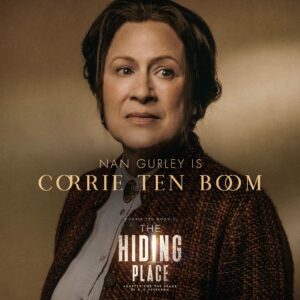 RAPID FIRE Q&A WITH NAN GURLEY CORRIE TEN BOOM IN THE HIDING PLACE
RAPID FIRE Q&A WITH NAN GURLEY CORRIE TEN BOOM IN THE HIDING PLACE
JHPENTERTAINMENT: Nan, before we get into questions about the show itself, I just gotta say, whenever I’ve written about you in the past, I typically include the moniker, ‘Nashville’s Grande Dame of the Theatre’. How does it feel to be thought of in such regard?
NAN GURLEY: Well, first of all, let me thank you for using such a moniker for me! You are very kind. As to how it feels to be thought of that way, it’s very humbling. It also makes me want to live up to peoples’ expectations of me so there is a bit of pressure involved too. I want to bring everything I’ve got to every performance. I want to be honest and real and vulnerable in the roles I play and I want the audience to see authenticity in my performances. So I put a lot of pressure on myself. It’s very gratifying when people enjoy what I bring to the stage. I’m also very grateful to have played so many roles in my own hometown and to have audiences that know me.
JHPENTERTAINMENT: What can you tell me about Corrie ten Boom, the character you play in The Hiding Place?
NAN GURLEY: Corrie was the first trained female watchmaker in Holland, so she was a pioneer of sorts. She and her sister and father lived in the rooms above the clock shop they owned and they were known all over Harlem, Holland, as people of great hospitality. They loved having people in their home. They also took in the children of missionaries who were serving in foreign countries and raised the kids while their parents were away. To me, this is extraordinary. But in many ways they were your ordinary, average, everyday people who did not seek fame and recognition. They did what they did without fanfare. If they had never been caught as part of the underground resistance, we would not know their story today because they would not have felt they needed recognition for doing the right thing. Corrie and her family are known because they got caught and went to Ravensbruck. Corrie is the only one who survived. When she left the camp and the war ended, she decided to go back to Germany and turn a concentration camp into a rehab center. She refused to be bitter. She learned to forgive the ones responsible for the deaths of her dad and sister and brother. She spent the rest of her life traveling to 60 countries around the world telling people of the power of God to enable you to forgive the unforgivable. This is what makes her so remarkable. Everywhere she went and shared her story, she told people that on her own she could never forgive, but that God’s power within her made it possible.
JHPENTERTAINMENT: Earlier, I spoke with Matt Logan, the show’s director, producer and designer. I mentioned that you’re actually returning to this role, having originated it in the 2019 World Premiere. Having debuted the role in A.D. Players’ presentation, and now revisiting her, have you discovered anything new about Corrie ten Boom that you’re bringing to this production?
NAN GURLEY: Corrie is a deep well. There are always more things to discover about a character as rich as Corrie ten Boom. And Pete Peterson has added some very lovely monologues for Corrie that were not in the first production. He has crafted it so that Corrie is in the process of looking back on all that happened to her and is processing these memories and experiences out loud in front of the audience as she is trying to understand and figure out what to make of all that happened. So that device is helping me bring a new layer of vulnerability to Corrie. The tough thing about playing a person who has become a sort of sainted icon is that you’re tempted to play her as a fully developed saint from the very start of the play. If I did that, the audience would never see what the journey really cost her in terms of suffering. What I’m trying to do is show that Corrie was fully human and struggled with the tragedy that happened in their lives. I want my portrayal of her to have a journey, an arc of development so that she is changed and different by the end of the play. Her story needs a beginning, a middle and an end in terms of character development.
JHPENTERTAINMENT: The show’s subject matter is heavy and daunting as it centers around a WWII Christian family in Holland who offer to hid Jews from the Nazis. What do you do to both prepare for the role and to decompress afterwards?
NAN GURLEY: I’ve been preparing for months for this production, and memorizing the lines is ONLY the beginning. I’ve read books and researched and watched Corrie on YouTube and immersed myself in the abundant subject matter about her. I guess I’ve been preparing all my life in all my roles to play such a character as Corrie. Learning the Dutch accent has also been very helpful. I love to do accents and it always helps me lose myself in the character when the character doesn’t sound at all like me! I try to make some decisions about how Corrie would have felt in the moment and what thought processes she would have had. She was human. She’s not different from me in that way. She would have been scared and angry and would have wondered at times where God was in all this horror. Her faith may have been shaken at times. Mine would surely have been. So I just remember that we’re not different from each other in many ways. As far as decompressing, I go home to my husband and talk and relax with him. He’s amazing.
JHPENTERTAINMENT: What’s one line, one through, one scene or one theme included in The Hiding Place that you hope audiences will take with them after seeing the show?
NAN GURLEY: One of my favorite scenes is where Corrie visits her friend Fred Koornstra (played by Matt Carlton) at the food office. He is in charge of giving out ration cards. There are so many Jews going in and out of the ten Booms’ home that they are running out of food and she needs more cards in order to feed them. Jews are not able to get ration cards so Corrie goes to Fred for help. The Germans heavily monitored ration cards and Fred knows he is risking his life if he helps her. But Corrie is able to talk him into stealing 100 ration cards for her. It’s really a funny scene and I look forward to it every day. Plus, it helps that Matt and I have done dozens of shows together over the years so we have an instant connection onstage all the time.
I hope the audiences will walk away inspired and encouraged after seeing The Hiding Place. All of us have experienced loss. It’s how we handle it that will see us through to victory on the other side. The ten Booms were people of great faith. They trusted the sovereignty of God even when they could not understand what was happening all around them. They experienced horrific loss. But one thing Betsie said to Corrie while they were imprisoned that I hope the audience will remember is this: “There is no pit so deep, that God’s love is not deeper still.”
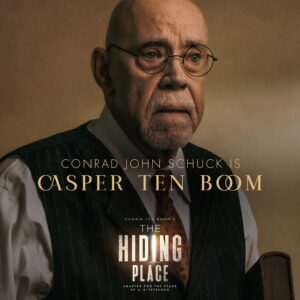 RAPID FIRE Q&A WITH JOHN SCHUCK, CASPER TEN BOOM IN THE HIDING PLACE
RAPID FIRE Q&A WITH JOHN SCHUCK, CASPER TEN BOOM IN THE HIDING PLACE
JHPENTERTAINMENT: First off, I’m so excited to be able to chat with you, having had the pleasure of getting to know you and your wonderful wife-even if just a little-the last several years. I’m sure I’ve gushed before, but I’ve been a fan since first seeing you in the human/robot buddy-cop sitcom, Holmes and Yoyo when I was a kid. Of course I also was a fan of your film debut in Robert Altman’s M*A*S*H and your many TV roles, including one of my favorite episodes of The Golden Girls. I’ve also been fortunate to see you onstage on tour, on Broadway and regionally, where you’ve performed in shows as Daddy Warbucks in Annie, Buffalo Bill in Annie Get Your Gun, General Waverly in White Christmas (my favorite stage musical of all time) and as a hospital administrator in Studio Tenn’s The Elephant Man. On the topic of your stage career, while researching to chat with you, I noticed your bio cites theatre as your preferred medium. What is it about performing live for an audience that draws you back time and time again?
JOHN SCHUCK: Well, there are a number of reasons for it. It’s what inspired me to become an actor. The film and television was wonderful for 20 or 30 years or so, but the time has passed me by now and the theater is what’s left. [Laughs] Which is fine. It’s not a problem; it’s just a reality of a career and so, I do as much theater as I possibly can. And after two years of COVID, of course, we all have been a little bit thirsty for some theater so I was thrilled when Matt asked me to do this.
JHPENTERTAINMENT: What drew you to the role of Casper ten Boom?
JOHN SCHUCK: Casper ten Boom is an interesting man. He’s very religious, very much a philosopher. He makes his living as a clockmaker so he understands mechanics and indeed in his philosophy, he’s fascinated with the mechanics of the world. So there are a lot of challenges there. Plus, his first skill is that of loving his daughters as a single parent. So there’s lots of gritty stuff to dig yourself into in terms of the story. In other words, the part is a challenge and I like challenges.
JHPENTERTAINMENT: When preparing to portray a real-life person like ten Boom, is your approach different from a fictional character, or do you view each role as a character, regardless?
JOHN SCHUCK: Well, I’ve only played a couple of “real” characters in my career that I know of. One was in a musical: Capt. Von Trapp. Daddy Warbucks was not a real character. [laughs] But this was definitely a real person. And to be honest, I have done no research into him whatsoever. I’ve relied solely on our author’s script to give me all the clues that I need for him. And that’s been more than enough. I think we have someone that’s true to the story but may not necessarily be an exact replica of the real man.
JHPENTERTAINMENT: With the action of the play taking place in Holland, the native language being Dutch, have you and your fellow cast mates worked with a dialect coach during the rehearsal process?
JOHN SCHUCK: Yes. We have definitely worked with a wonderful dialect coach and she’s been terrific because she’s reduced it down — the Dutch part at least — to two or three, what she calls, “returning to your base.” And it’s simple. Everybody at home thinks I’m crazy because the only way to get it right is to talk like that all the time for the most part. So it doesn’t matter what you’re saying, you can say it in Dutch. But it’s been fun. A lot of fun.
JHPENTERTAINMENT: Speaking of your cast mates, I chatted with Nan Gurley earlier and am about to interview Carrie Tillis. They play your character’s daughters, Corrie and Betsie respectively. Since my interview is called Rapid Fire, what one word would you use to describe Nan…and what one word would you use to describe Carrie?
JOHN SCHUCK: Oy! Well, for Nan, it’s definitely Powerful. And for Carrie, in this part, it’s Ethereal.
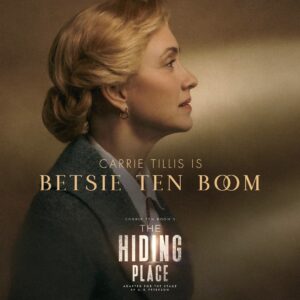 RAPID FIRE Q&A WITH CARRIE TILLIS, BETSIE TEN BOOM IN THE HIDING PLACE
RAPID FIRE Q&A WITH CARRIE TILLIS, BETSIE TEN BOOM IN THE HIDING PLACE
JHPENTERTAINMENT: Who is Betsie ten Boom to you?
CARRIE TILLIS: She has a perspective that is so fresh. She’s always looking for beauty and brightness, and not even in the bright and pretty places, but in the dark places. That is really wonderfully unique.
JHPENTERTAINMENT: Prior to chatting with you, I began this Rapid Fire 20Q by posing a few questions to your director, Matt Logan. One thing I love about Matt is his attention to detail amongst his set design. Has he continued this within the ten Boom home set?
CARRIE TILLIS: I have always admired Matt. He does so many things well and his talent is all about the big picture, the whole piece. And he’s remarkable at condensing a massive piece into sometimes a smaller set, and it’s magic what he can do, the world he can create, with a very limited set. But then he dresses the set with such great detail and that comes in the set pieces and costumes. You have the big picture and then it has the finite detail. He’s brilliant.
JHPENTERTAINMENT: Those that know you, know you come from a musical family. To that end, what can you tell me about the interstitial music that accompanies this show?
CARRIE TILLIS: I was so thrilled to find out that Don Chaffer was going to be writing the music for this. I had the luxury of working with Don on the Legacy series for Studio Tenn. And when I heard Don was on board, I thought, “Oh, we’ve got our A-Team together again.” But clearly this is a very different show, different time period, different feel, so I was very excited when I got to hear the music. It was like a movie score, and there were themes for the family. It’s just beautifully written. It’s poignant when it needs to be poignant and it’s scary when it needs to be scary. I knew he would write something wonderful and it just adds so much to this whole show.
JHPENTERTAINMENT: When speaking to your director and co-stars John and Nan, I keep thinking about the community of theatre. In addition to Nan and John, you’ve shared the stage with a number of the ensemble cast members in previous productions. I’m curious to know, in light of the past two years of isolation, coupled with the seriousness of this work, if there seems to have been more of an effort to connect behind the scenes and how that might effect your relationships on-stage?
CARRIE TILLIS: When we started doing readings for this show, we were still deep in the pandemic. So seeing each other’s faces again for the first time was just a gift and we just looked at each other in a way, like “We’re still here!” I would say that from those rehearsals up until the opening of the show, everyone has been so present and keenly connected because we’ve missed each other so much. We’re a very tight-knit community, but we missed our art as well. To work again with each other added this very palpable layer of gratitude.
JHPENTERTAINMENT: While researching to chat with you, I kept noting the overall theme of Forgiveness, especially as it relates to Betsie ten Boom’s ability to forgive, in spite of everything she endures. What is forgiveness such an important attribute and why do you think forgiveness continues to be such a challenge for so many people?
CARRIE TILLIS: To me, forgiveness allows a person to move forward. The challenge is obvious — no one likes to be hurt personally, no one likes to have parts of the world hurt. It’s hard to feel it personally and I think the challenge for us individually or as a group is that we rarely see the big picture right at the hurt. We only feel the hurt. Betsie always had that resolve from the very beginning. She had forgiveness right at the very beginning. It was just her center. I think forgiveness does allow us to move forward.
——————————
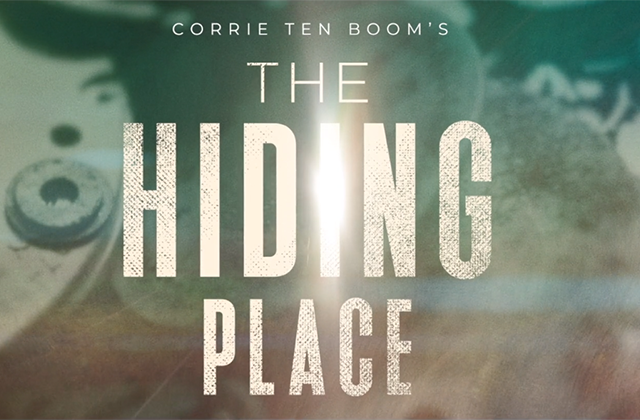
The Hiding Place runs June 30-July 23. For more about the show, CLICK HERE. To purchase tickets, CLICK HERE. Check out The Rabbit Room online or follow them on Facebook and Instagram.
As always, if you wanna follow JHPEntertainment to find out who I’m chatting with for my next Rapid Fire Q&A, or for my take on the latest local and national theatre, music and movie offerings, find us at JHPEntertainment on Facebook, JHPEntertainment on Instagram and JHPEntertainment on Twitter.
Got an event or show we should know about, drop us a line at the Contact tab. Till then, #GoSeeTheShow!
